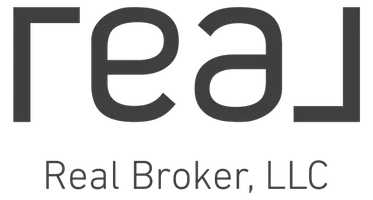Athena Pettway
We are here 24/7 to assist you with your foreclosure issue.
- 217Number of foreclosures stopped
- 122Number of Properties Sold
- $5.7MValue of Real Estate Sold
WE CAN HELP

WHAT IS A FORECLOSURE?
A foreclosure is the process by which a homeowner’s rights to the property are forfeited because of failure to pay the mortgage. If the person cannot pay off the outstanding debt or sell the property through a short sale, the property then goes to the foreclosure auction. If the property does not sell at auction it goes back to the lending institution.
Options to Avoid Foreclosure
Reinstatement
A reinstatement is the simplest solution for a foreclosure, however it is often the most difficult. The homeowner simply requests the total amount owed to the mortgage company to date and pays it. This solution does not require the lender’s approval and will ‘reinstate’ a mortgage up to the day before the final foreclosure sale.
Mortgage Forbearance or Repayment Programs
The word “forbearance” means to “hold back” and in the case of mortgage forbearance programs the lender agrees to hold back on exercising its foreclosure rights to give you a brief reprieve from payments in an overall plan to bring your mortgage current.
Skipping a few payments might sound good but forbearance is a temporary foreclosure solution at best with potentially severe consequences for default and is therefore not for everyone. Because of this mortgage forbearance is typically limited to homeowners experiencing short term and unexpected financial problems with a clear end in sight like temporary unemployment or mandatory unpaid leave, illness or other emergency.
Mortgage Modification
A Loan Modification reduces your monthly payments. Reduced payments can be from principal reductions, lowered interest rates, extending the number of years or a combination of any of these tools.
In addition to being a popular and effective foreclosure option, the recent Nationwide foreclosure settlement provides much needed incentive and some limited funding to force banks to agree to more loan modifications. Unfortunately, the amount of money involved compared to the size and scope of the underwater mortgage crisis means that just a small percentage of homeowners will actually benefit from the Settlement. Outside of the Foreclosure Settlement, very few large lenders have effective loan modification plans in place and little motivation to change.
Despite being the obvious solution to help end the foreclosure crisis, banks hate giving away money which is how many lenders wrongly perceive loan modifications. Instead of trying to improve the economy by slowing the foreclosure rate — which will help both homeowners and banks — most lenders focus solely on short term profits and overall have been very reluctant to work with homeowners to create fair and equitable loans rather than the upside down version most borrowers have.
Further, banks also fear that if foreclosure loan modifications become too popular, even homeowners who can otherwise afford mortgage payments will stop paying in the hope of getting a better deal through strategic default. Imagine the horror of giving a homeowner a fair deal!
A final reason why so few loan modifications are granted involves the role of “loan servicing” companies in the approval process. Hired by lenders to handle billing and collection matters for your mortgage, loan servicing companies make much more money if your home goes into foreclosure or your loan goes into default. Although there are exceptions, many of these companies have no interest whatsoever in helping you out of the foreclosure process.
Watch Out For “Dual Tracking”
While the owner or loan servicing company is working on your loan modification application, and even if they promise you that your foreclosure lawsuit is on hold, don’t be fooled.
Through a method called “dual tracking” most lenders continue to pursue foreclosure cases even while the loan process is ongoing so make sure you meet all court deadlines and continue to defend your foreclosure lawsuit until you get formal approval and confirmation in writing that the foreclosure is over. If you make the mistake of being lulled into a false sense of security, you’ll be pondering what happened from the sidewalk outside your former house!

Bankruptcy: How Bankruptcy Stops Foreclosure
Filing foreclosure bankruptcy as a foreclosure alternative is often the only way to stop impending foreclosure sales, but one that should only be used when other Foreclosure options don’t work . Although foreclosure bankruptcy might be the best option for homeowners with significant credit card debt, it’s generally a last ditch effort for most.
The short term benefit of declaring bankruptcy is the “automatic stay” which basically freezes your Foreclosure Lawsuit and cancels any pending foreclosure sale. The automatic stay will remain in effect thereby stopping the Foreclosure Process until the lender asks for “relief from stay”, although in some situations the stay can be permanent as discussed below.
Determining if the stay will be temporary or permanent depends in large part on whether you file Chapter 7 or Chapter 13 bankruptcy proceedings. However, due to the complexities of the bankruptcy process, deciding how and when to file are decisions best left to a bankruptcy attorney with specialized knowledge of the law in this area. As such, it's essential to at least consult with a lawyer before proceeding and remember to always hire professionals based on a referral or recommendation from a source you trust.
Don’t Just Walk Away!
Refinance
A refinance is a good option among foreclosure alternatives because its impact on credit is minimal, it replaces an unaffordable loan with an affordable loan and it allows you to remain in your home.
A Short Sale
A short sale is when the bank allows you to sell your home at a loss which also requires you to move out. A short sale has less of an impact on your credit score than a foreclosure and gives you the ability to bounce back and restore your life.
HOW CAN WE HELP
As a Short Sale and Foreclosure Resource we take the time to evaluate your specific situation and give you a guided process to help you figure out what best option is for you.
Schedule your confidential evaluation today!
